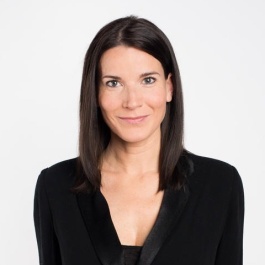CELINE ROUX EN

Chief Opperating Officer Newen France
Is production (still) a highly polluting business ?
As in all industries, production is a source of pollution. We know that the audiovisual sector releases around 1.7 million tonnes of CO2 annually*. The sector became aware of the issue a few years ago and started to change in response – for example, making more use of public transport and waste management, and using local caterers when shooting on location. Though the momentum was checked by Covid-19, our production teams have resumed their efforts with just as much enthusiasm. We have moved from individual initiatives to more structured responses, in particular the “Action!” plan from the National Centre for Film and Moving Images (CNC), one aim of which is to create a standard carbon calculator for the industry.
At Newen, we set up a Green Committee in 2020 with the aim of creating a budget, devising a plan to centralise efforts and fixing common objectives.
But before doing anything, we needed to carry out an overall assessment: so we were the first French broadcaster to do an internal audit to measure our carbon footprint.
What did the audit find ?
Measuring our carbon footprint is a colossal undertaking, involving an analysis of all our contributory factors, from energy bills to waste products, and taking in an analysis of travel and the behaviour of our employees (how do they commute to the office, how many times a week do they eat meat for lunch, etc). To carry out the audit, we called in an external firm called Workflowers. They estimated Newen’s current carbon footprint at 3,000 tonnes of CO2 equivalent per annum. We then set ourselves two ambitious targets to reduce our footprint: -20% by 2024 and -30% by 2030.
In what areas are you able to take action?
We have six areas for action: buildings, energy, transport, waste, digital and transparency (i.e. the ability to calculate the carbon footprint of each production). Indicators will be set for individual items (energy, travel, etc) with a specific target for reduction in each one. For example, our greatest source of pollution is staff travel, so we are aiming for the train to become the standard mode of transport in France, with a 20% cut in air travel. Our new premises** will be eco-labelled, and we will be aiming to achieve a plastic-free, low-waste office environment.
Is there one area for action that looks more important than the others ?
Yes, and it’s the one that is least visible : digital pollution due to data storage (shooting rushes, programme and drama archives, etc). The broadcaster, distributor and producer may each keep a copy of the same item in their computer memory, and all on different servers.
The objective is to optimise our storage by achieving “digital sobriety”.
Can content also be a vector for change ?
Plus belle la vie has been our test-bed. It is now entirely eco-produced, and its engagement shines through the scripts: from simple eco-friendly things characters do in their everyday lives, to more campaigning storylines. For example, we have worked with the On est prêt collective, and invited the environmental activist Camille Etienne to appear in an episode to coincide with Earth Day. Where technically possible, other productions now follow the same model, like Ici tout commence on TF1, which shows how to cook in an environmentally-friendly way.
We are also producing Cyril Dion’s next documentary, Animal, which looks at the place of humans in the living world. After all, it’s our responsibility to offer hopeful and inspiring content.
* According to a May 2021 survey by Ecoprod.
** Move planned in early 2022.